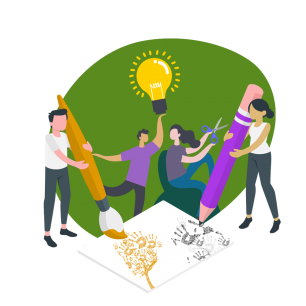Talking on the phone

Exploring the various scenarios and differences of being an immigrant/refugee
From the group choose four volunteers that will play the roles of refugees and migrants. The rest of the group will be their family that remained at home. Give to the four volunteers the Handout with the description of one role:
Refugee 1: moving from a country in the south of the Mediterranean (X) to north of the Mediterranean (Y).
Migrant 1: moving from the north of the Mediterranean (Y) to another country in the north.
Refugee 2: moving from country south of the Mediterranean(X) to another country south of the Mediterranean (X2)
Migrant 2: moving from the north of the Mediterranean (Y) to the South of the Mediterranean (X)
The four volunteers should be identified with their condition on a name-tag.
Allow them sometime to familiarise with their roles.
The activity starts with each of the migrants and the refugees calling by phone their respective families and tell them how they are doing and what their situation is, and ask about the members of their family.
The family asks questions regarding their life, work, and friends, how they have been received by the new society, possibilities, feelings, what are they missing etc.
Each phone call should not take more than five minutes
Once the four phone calls have been done, ask the four volunteers to describe how they felt while taking that role and talking on the phone with their relatives. In turn all the participants are asked to describe what they saw in the role play and express their feelings.
Invite the volunteers to take out and throw away the role indicator (name-tags, colour paper,...) while saying aloud their own real names.
These are some guidelines that may support the debriefing of the exercise:
What do people expect when they are leaving their country? Tell different reasons to immigrate.
Are the dreams like the reality?
How do we, whether from North or South treat refugees?
How do we, whether from North or South treat immigrants? Do we treat them differently depending on their origin?
In case of immigrating/seeking refuge, what would you expect of the habitants of your new country?
What difficulties would you have?
The handouts of the exercise are just a proposal, facilitators should adapt them to their reality and the context of their learning activity.
Whether in the north or in the south, there are stereotypes and prejudices that need to be acknowledged in order to go beyond them.
The session could be followed by the French film Qu’est-ce qu’on a fait au bon Dieu? directed by Philippe de Chauveron (2014).
There are many materials supporting the reflection about migrants and refugees. The activity could be followed about a research about the live conditions (legal, economical, social,...) of refugees and migrants in their communities